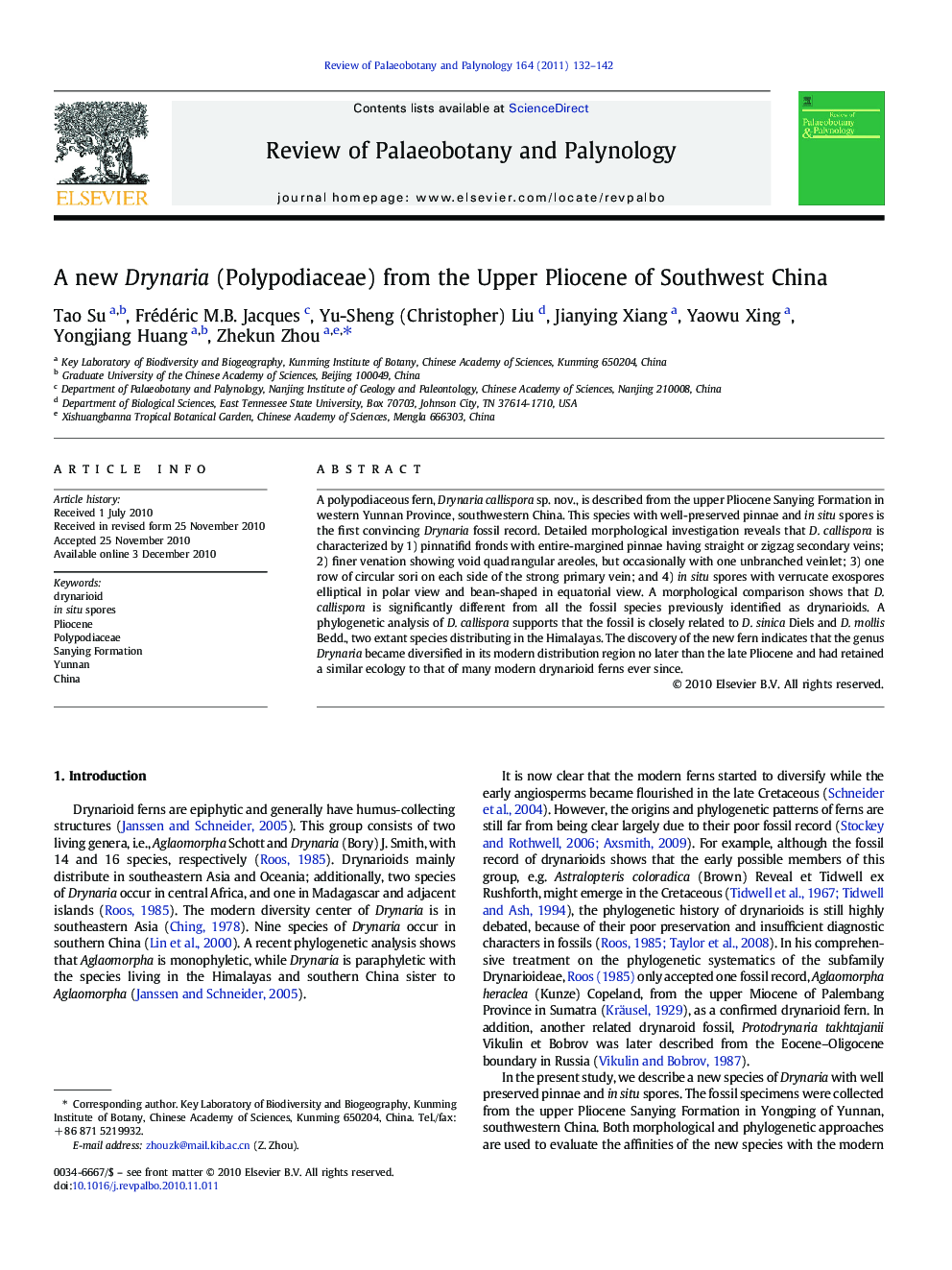| Article ID | Journal | Published Year | Pages | File Type |
|---|---|---|---|---|
| 4750591 | Review of Palaeobotany and Palynology | 2011 | 11 Pages |
A polypodiaceous fern, Drynaria callispora sp. nov., is described from the upper Pliocene Sanying Formation in western Yunnan Province, southwestern China. This species with well-preserved pinnae and in situ spores is the first convincing Drynaria fossil record. Detailed morphological investigation reveals that D. callispora is characterized by 1) pinnatifid fronds with entire-margined pinnae having straight or zigzag secondary veins; 2) finer venation showing void quadrangular areoles, but occasionally with one unbranched veinlet; 3) one row of circular sori on each side of the strong primary vein; and 4) in situ spores with verrucate exospores elliptical in polar view and bean-shaped in equatorial view. A morphological comparison shows that D. callispora is significantly different from all the fossil species previously identified as drynarioids. A phylogenetic analysis of D. callispora supports that the fossil is closely related to D. sinica Diels and D. mollis Bedd., two extant species distributing in the Himalayas. The discovery of the new fern indicates that the genus Drynaria became diversified in its modern distribution region no later than the late Pliocene and had retained a similar ecology to that of many modern drynarioid ferns ever since.
